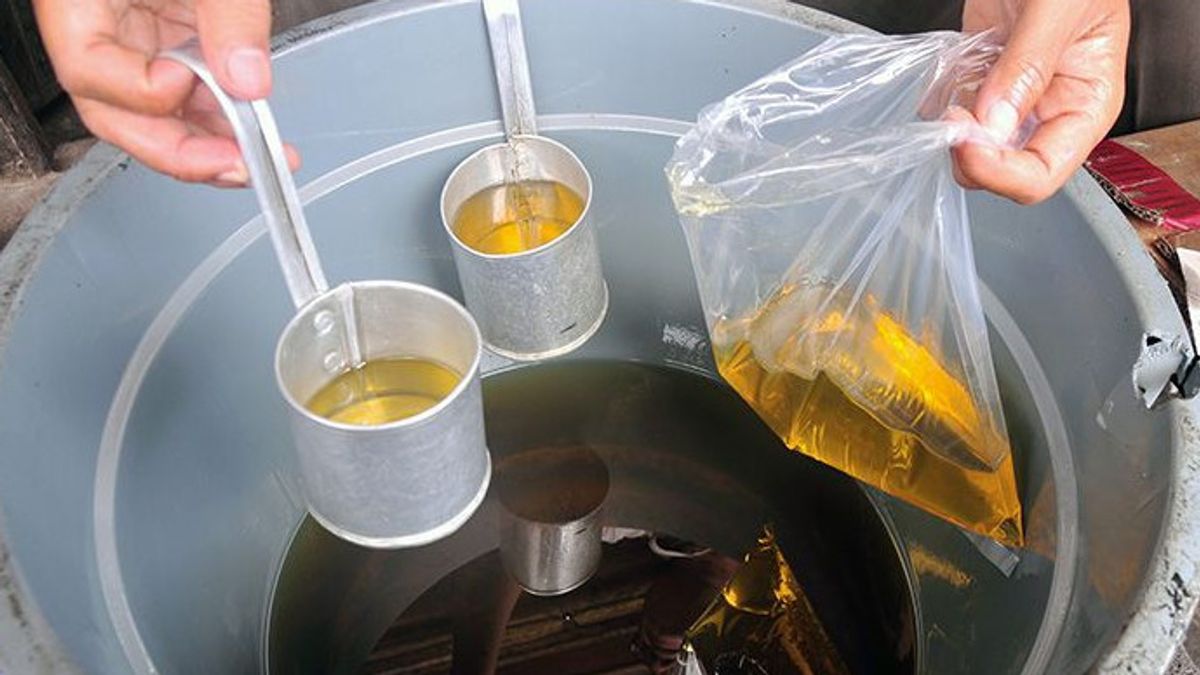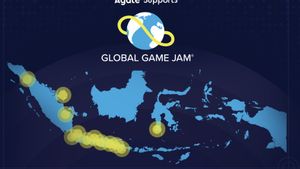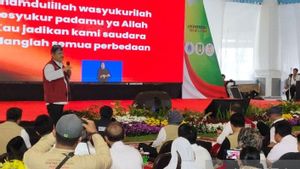JAKARTA - The government through the Ministry of Trade prohibits the sale of bulk cooking oil to the market as of January 1, 2022. Instead, the government requires the sale of packaged cooking oil.
Indef Executive Director Tauhid Ahmad assessed that the circulation of bulk cooking oil could not be stopped suddenly. According to him, the transition from bulk to packaged cooking oil must be done gradually. This is because this regulation will put pressure on the lower middle class who are consumers of bulk oil.
Not only that, Tauhid admits that he is worried that this policy will actually be used by parties who want to take advantage by hoarding stock and making prices high.
"The withdrawal is slow. I think if it's not gradual, people are worried that people will hold it back. Make sure that later, for example, bulk cooking oil disappears, but it will increase. Just hold on, over time (the price) will soar. It's a pity," he said when contacted by VOI, Thursday, November 25.
This policy, said Tauhid, will also have a major impact on micro, small and medium enterprises (MSMEs) who use large amounts of cooking oil for their production. According to Tauhid, many MSME actors use bulk cooking oil because the price is much cheaper.
"Why go to bulk? Because they see it's cheaper. Because the need for MSME actors is a price difference of Rp. 2,000 or Rp. 3,000 per kilogram (Kg) for MSME actors who use cooking oil. the cost will increase and the price of the products sold will increase," he said.
According to Tauhid, so that people want to switch to using packaged cooking oil, the gap or price difference should not be much between bulk and packaged. If not, people will still choose cheaper oil.
"First, the price difference should not be far. As long as there is a price gap that is too far, people will look for the cheapest price, that's the law of the market, all. For upper-middle consumers, it may not taste good, but the lower-middle one feels it," he said.
Then, continued Tauhid, the availability must be ensured. Tauhid said, packaged cooking oil must also be available in large sizes. This is important to meet the needs of MSME business actors.
"So far, bulk cooking oil is easy to obtain. The size is also relatively large. How much is the largest packaging (packaged cooking oil), it must be considered for the needs of business actors. Because they are happy to buy bulk cooking oil in large quantities So it is prepared in large quantities with the brand and the price is relatively cheap," he said.
Meanwhile, Executive Director of the Indonesian Vegetable Oil Industry Association (GIMNI) Sahat Sinaga said that the ban on bulk cooking oil had existed since 2010 when World Bank managing director Mari Elka Pangestu served as Minister of Trade.
However, he said, until the trade minister changed 9 times, this policy had not been issued. According to him, his party has been waiting for 11 years to execute the regulation. Because, when the discourse was initiated, many members of GIMNI made investments to meet the consumption quota which had been supplied from bulk oil.
Sahat said the investment of 14,000 packing lines is equivalent to rupiah. But unfortunately he could not provide an exact figure how much funds have been disbursed.
"So this is a program that has been very delayed and has been delayed a lot, which has disappointed the industry. Why? The industry began investing heavily in providing packing line machines. It has been delayed, I don't know the reason. We hope that the government will be consistent when we make decisions," he said.
For your information, the Ministry of Trade has issued a regulation related to stopping the sale of champion cooking oil as stated in the Minister of Trade Regulation (Permendag) Number 36 of 2020 concerning Mandatory Packaged Palm Cooking Oil.
Under the regulation, the Ministry of Trade prohibits the sale of bulk cooking oil as of January 1, 2022. Instead, the Ministry of Trade requires the sale of packaged cooking oil. However, bulk cooking oil can still be traded until December 31, 2021.
The English, Chinese, Japanese, Arabic, and French versions are automatically generated by the AI. So there may still be inaccuracies in translating, please always see Indonesian as our main language. (system supported by DigitalSiber.id)













